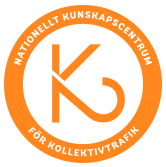This paper examines governance responses to Mobility as a Service (MaaS). The analysis focuses on the interactions between public transport systems and MaaS developments in Amsterdam, Birmingham, and Helsinki. Case comparison is informed by the multilevel perspective on socio-technical transitions and literature on meta-governance of networks. Drawing on these frameworks and empirical findings, the paper identifies six governance approaches to MaaS across cases: analyser, architect, convener, experimenter, lawmaker, and provider. These basic models encompass strategies ranging from hands-on strong intervention to information collection efforts. Consistent with the transitions literature, these six approaches indicate that public transport regimes seek to control the apparent disruptive potential of MaaS by incrementally absorbing innovations; to this end, regime actors adopt governance responses that tend to reproduce existing institutionalised ways of doing and prevailing logics. Furthermore, the six approaches reveal intense interaction between regime and niche, suggesting that a niche-regime space might have emerged in the cases; actors travel and operate across niche, regime, and niche-regimes, mainly driven by concerns with market share and revenue streams in the mobility system.
